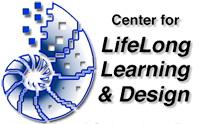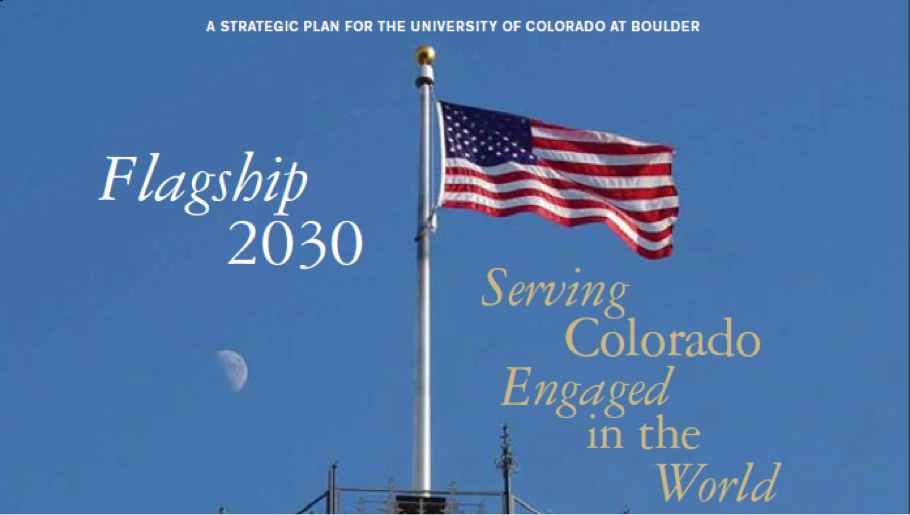Post-ICLS’2014 Meeting, Breckenridge, CO; June 27 – June 30, 2014
Rich Landscapes of Learning
|
Input from Participants for Discussion Topics
Answers from Exercise “Vision of the Past” versus “Vision of the Future”
Additional Remarks (Vision, Science of Learning, Movie)
Objectives
The meeting will bring together a small number of researchers in the Learning Sciences coming from different backgrounds and different countries who are interested (based on their respective background knowledge) to explore visions for the learning sciences in the future. The agenda will be driven by evolving ideas and discussions rather than by a fixed set of presentation. The events will not only include sessions in conference rooms, but interactions and discussion during joint walks/hikes and over meals as well. The spirit of the meeting will be focused on collaborative brainstorming and knowledge construction based on “learning when the answer is not known” and taking advantage of the “symmetry of ignorance”, “conceptual collisions”, and “epistemological pluralism” among the participants.
Initial Themes (to be further elaborated and refined by all participants)
- different facets of learning: lifelong, formal, informal, self-directed, interest- and passion-based, cyberlearning, problem-based, collaborative, peer-based, self-regulated, ……………
- concepts: rethinking education in the age of technology, mindsets, learning analytics and big data, MOOCs, argumentation, cultures of participation, cultures of creativity, Maker culture, 21st century skills, mass collaboration, grand challenges of technology-enhanced learning, …..………………..
- transformations (as complements not as replacements)
- have to learn → want to learn
- teacher, learner = f{person} → teacher, learner = f{context}
- learning on demand → using on demand
- design trade-offs (“Faustian Bargains”):
- information and participation overload ↔ context awareness
- extrinsic motivation ↔ intrinsic motivation
- learning about ↔ learning to be
- learning when the answer is known ↔ learning when the answer is not known
- knowledge in the head ↔ knowledge in the world
- cultures literacy ↔ individual, idiosyncratic interest
- measurement against standards ↔ rewarding unique achievements
- rigor ↔ rigor
- supply-driven learning ↔ demand-driven learning
- school as “god-given” entity ↔ school as social construct
Input from Participants for Discussion Topics
Ulrike Cress:
- knowledge within social systems
- mass collaboration
- open resources in the Internet
Allan Collins:
- interest-based learning
- rethinking education in the age of technology
- collaboration
Frank Fischer
- 21st Century Skills like Scientific Reasoning and Argumentation
- Participating in Communities of Practice
Iolanda Garcia
- students’ participation in learning co-design
- self-directed learning and open education
- digital culture and educational change
Sharon Derry
- designs that build informal (out of school) & formal (school) connections
- experiential and place-based learning
- Most of the topics listed above
Heisawn Jeong
- Collaborative learning/knowledge co-construction/knowledge-building
- Levels of learning/Emergence/Mass or collective collaboration
- Culture, participation, science
Frank Shipman
- Serious Games
- Technology Appropriation
- Learning Data Science
Alexander Repenning
- Cyberlearning (the use of networking and computing to enhance learning)
- Computing Computational Thinking
- Transfer: assessing, and stimulating it.
Gerry Stahl
- 21st-century skills
- Grand challenges of technology-enhanced learning
- Supporting and analyzing collaboration
Rogerio de Paula
- New media and learning
- Data analytics in learning settings and technologies (e.g. learner modeling).
- Information practices as means to understanding learning
Julia Eberle
- Taking advantage of the symmetry of ignorance
- informal collaborative learning
- cultures of participation
Cindy Hmelo-Silver
- problem-based learning
- technology support for collaborative learning
- communities of learners
David Redmiles
- Strategies in collaborative learning
- Learning in virtual worlds
- Identity and gender in collaborative and e-settings
Answers from Exercise “Vision of the Past” versus “Vision of the Future”
| Vision of the Past | Vision of the Future |
| knowledge construction | proactivity / navigating choice / complexity |
| learning where is answer is not known | cultures of creativity |
| situated cognition | cyberinfrastructure for collaborative coalitions |
| mass education | technology = automation; globalization = increased collision between different cultures and epistemological frameworks |
| domain-oriented design environments (DODEs) | information still wants to be free |
| vision of a methodology not based on experimental psychology to a design-focused iterative methodology | creating archives of video and computer records that researchers can analyze, and debate forming a common database to build our theories around |
| knowledge sharing and having access to information of all sorts, cultures à Web 2.0 | analytic tools that make use of the information in the net and give access to the collective knowledge |
| learning theories of collaboration à our own dogmas abut technology | learning in a 24/7 media societymulti-model perspective |
| an early mentor (I think it is relevant that he was French) looked at my code and said: “it was ugly”. He proceeded to lecture me on style. | I worry about my students and research communities overly focused on knowledge and not on community and experience (humanity) |
| the challenge of supporting personal expressions during learning | moving towards communities of incremental learning |
| cognition and culture | research ßà design; theory ßà practice; understanding ßà change |
| understanding how to support meaningful learning; learning, cognition and context | supporting meaningful learning that helps address important societal problems; using CSCL for lifelong learning |
| learning is social and cultural and takes places in communities | learning in ecologies driven by the individual but in connection with multiples communities and objects |
| most important learning in informal community compared to formal learning | getting rid of structure (formal learning) that hinder development of healthy identities for lifelong learning |
Additional Remarks (Vision, Science of Learning, Movie)
An Example for a Vision?
Flagship 2030 — Strategic Plan for CU Boulder (2010)
http://dirwww.colorado.edu/flagship2030/downloads/CUFlagship.pdf
The Flagship 2030 Initiatives
- Residential Colleges
- Customized Learning
- Experiential Learning
- Colorado’s Research Diamond
- Transcending Traditional Academic Boundaries
- Building a Global Crossroads
- Creating University Villages
- Alternative Degree Tracks
- Year-round Learning
- Making Enterprise Work
Beyond the Unaided, Individual Human Mind

Most Challenging And Most Important Issue for the CSCL community in 2007? — Selected Answers à Research Activities
- computers and schools are basically incompatible à informal learning
- CSCL is being reinvented by the rapidly growing web 2.0 community; the interchange between these two communities should be fostered → ????
- use CSCL to enhance learners’ / workers’ capability for creativity → ????
- CSCL has failed to settle on an agreed-upon research agenda → ????
- develop new methodologies for CSCL → ????
- do work that is relevant to the important problems and issues of today → address important societal problems (e.g.: what is worth learning?)
- take learning as a phenomenon that is deeply rooted in its broader institutional and practical contexts → ????
Learning In School and Out
source: Resnick, L. B. (1987) “Learning in School and Out,” Educational Researcher, 16(9), pp. 13-20.
| Learning in School | Learning out of School |
| individual cognition | shared cognition |
| pure mentation (tools for learning) | tool manipulation (tools for living) |
| symbol manipulation | contextualized reasoning |
| generalized learning | situation-specific competencies |
Science of Learning
- Ivan Illich “Deschooling Society” (1971):
- “The inverse of school is possible: that we can depend on self-motivated learning instead of employing teachers to bribe or compel the student to find the time and the will to learn; that we can provide the learner with new links to the world instead of continuing to funnel all educational programs through the teacher.” —
- “A major illusion on which the school system rests is that most learning is the result of teaching.”
- Scribner and Sachs:
- “A decade of interdisciplinary research on everyday cognition demonstrates that school-based learning, and learning in practical settings, have significant discontinuities. We can no longer assume that what we discover about learning in schools is sufficient for a theory of human learning.” —
- Yrjö Engeström:
- “In important transformations of our personal lives and organizational practices, we must learn new forms of activity which are not there yet. They are literally learned as they are being created. There is no competent teacher. Standard learning theories have little to offer if one wants to understand these processes.”
- E. D. Hirsch’s Definition of Discovery Learning
- “The phrase refers to the teaching method which sets up projects or problems so that students can discover knowledge for themselves through hands-on experience and problem solving rather than through textbooks and lectures. Progressivists made discovery learning the chief or exclusive form of teaching starting with the “project method”.
- The premise is true that knowledge acquired on one’s own, with difficulty and by expending lots of time and effort, is more likely to he retained than knowledge presented verbally. It is also true that knowledge gained in a realistic context as part of an effort to solve a problem is likely to be knowledge that is well understood and integrated. Unquestionably, then, discovery learning is an effective method—when it works.
- But there are two serious drawbacks to preponderant or exclusive reliance on discovery learning. First, students do not always make on their own the discoveries they are supposed to make; in fact, they sometimes make “discoveries” that aren’t true. Hence, it is essential to monitor students to probe whether the desired learning goal has been achieved, and if not, to reach the goal by direct means. Second, discovery learning has proved to be very inefficient. Not only do students sometimes fail to gain the knowledge and know-how they are supposed to gain, but they do not gain it very fast. Research into teaching methods has consistently shown that discovery learning is the least effective method of instruction in the teacher’s repertory.”
- Etienne Wenger:
- learning and teaching are not inherently linked:
- much learning takes place without teaching
- much teaching takes place without learning
- John Anderson: The Role for Basic Skills
If most job-relevant knowledge must be learned on demand what is the role for basic education? In particular, I will consider the role of a traditional high school mathematics education. There is a general perception that American children are poorly prepared in mathematics and that this is part of the reason for our lack of international competitiveness. However, the kind of mathematics that American schools fail at teaching (and which other countries excel at) has increasingly little relationship to work performance. Almost all of the mathematics that students learn in traditional high school mathematics is job-irrelevant (e.g., doing proofs in geometry) or now automated (e.g., algebraic symbol manipulation). Most people’s on-the-job contact with mathematics (if they have any) will be in using tables and software packages based on mathematics. Perhaps we need only teach traditional mathematics to a small minority of the population who will maintain these systems.
Perhaps the function of a high-school mathematics education is to train students to intelligently use these mathematical artifacts.
source: Eisenberg, M. & Fischer, G. (1993) “Symposium: Learning on Demand” in Proceedings of the Fifteenth Annual Conference of the Cognitive Science Society, Boulder, CO, pp. 180-186. http://l3d.cs.colorado.edu/~gerhard/papers/Scanned/1993-Symp-on-LOD-15thConfCogSciSoc.pdf>>>
- Elixir or Snake Oil: Revisiting The Debate Over Computers In Education
source: M. Eisenberg, G. Fischer and M. Resnick — CSCL’1999 Panel
Educational computing has evolved alongside a tradition of dissent. Over the past generation, there have been claims that computers in classrooms foster isolation, lack of creativity, rigid (or alternatively, sloppy) thinking, an overemphasis on abstract thinking (and consequent undervaluing of real world experience), and more. Yet despite the persistent controversy, the presence and importance of computers in schools continues to grow. We would like to engage in a discussion with CSCL attendees on this subject; our purpose is to take stock of the progress of educational computing in the light of the criticisms that have been leveled against it over the years. Have any of the early criticisms been defused? Have the criticisms themselves changed in response to the growth of technology? Are there truly irreconcilable differences between the computer enthusiasts and critics, or is there a hope of finding common ground and a culture (or at least a subculture) of detente between the two populations?
Movie “Caine’s Arcade” — Illustration of Self-Motivated and Self-Directed Learning and Acting and the Power of “Making”
https://www.youtube.com/watch?v=faIFNkdq96U
A 9 year old boy who built an elaborate cardboard arcade in his dad’s auto parts store is about to have the best day of his life, and inspire the world.


